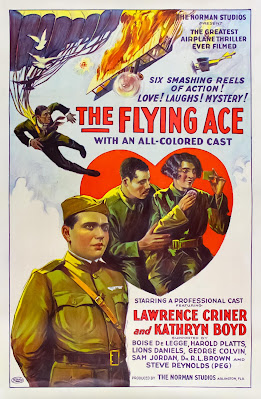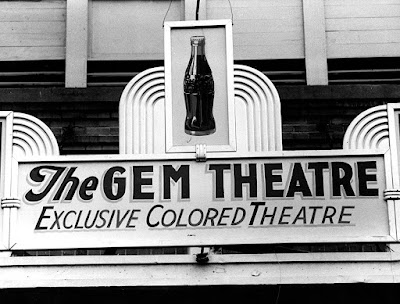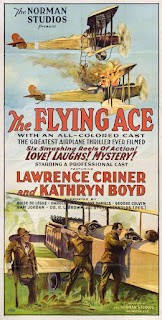I've just finished a five-shows-in-five-days marathon, and boy are my fingers tired.
Actually, not really—foe me, silent film accompaniment is more mentally taxing than physically demanding.
So, to borrow a phrase from Monty Python: "Oooh, my brain hurts!"
Yesterday's screening of 'When Knighthood Was in Flower' (1922) at the Town Hall Theater in Wilton, N.H. drew raves from the 40 or so people who attended.
Starring Marion Davies, it's quite the movie and holds up well. You can see why it was the year's second-highest grossing picture, exceeded only by Douglas Fairbanks in 'Robin Hood,' another adventure set in Merrie Old England.
'Knighthood' would not have been available at all if not for Ben Model's rescue project a few years ago, which got the film out of the Library of Congress vaults, transferred to digital media, and then restored for enjoyment and exhibition.
I was delighted to contribute to the Kickstarter effort that made the film's reissue possible. Thanks to Ben and everyone else who worked on this edition.
So what's next for me?
On Wednesday, I do music for 'The Flying Ace' (1926), a "race" drama being screened at Red River Theatres in Concord, N.H.
Then it's off to the three-day Kansas Silent Film Festival, where I'll accompany Oscar Micheaux's 'Within Our Gates' (1921) and a passel of short comedies.
No rest for the wicked. So I must be very wicked indeed.
For now, here's the press release about the Red River screening of 'The Flying Ace,' with a lot more info about the film, which was recently added to the National Film Registry by the Library of Congress.
It's worth seeing, as it's an artifact from a time not that long ago when it was common for movie theaters in some parts of the U.S. to be segregated by race.
Water fountains, too.
What were they thinking?
See you in Concord on Wednesday night, or in Topeka next weekend!
* * *
MONDAY, FEB. 14, 2022 / FOR IMMEDIATE RELEASE
Contact Jeff Rapsis • (603) 236-9237 • jeffrapsis@gmail.com
Red River Theatres to screen rare vintage crime melodrama with all-Black cast
'The Flying Ace' (1926), recently added to U.S. National Film Registry, to be shown with live music on Wednesday, Feb. 23
CONCORD, N.H. — Can discrimination exist in an America where everyone is Black?
That's
among the questions posted by 'The Flying Ace' (1926), a rare surviving
example of movies produced early in the 20th century for Black
audiences in segregated cinemas.
'The Flying Ace,' recently named
to the U.S. National Film Registry, will be screened in honor of Black
History Month on Wednesday, Feb. 23 at 7 p.m. at Red River Theatres, 11
South Main St., Concord.
General admission is $12 per person, $10 for Red River members.
The screening will feature live music by Jeff Rapsis, a New Hampshire-based silent film accompanist.
'The
Flying Ace' was produced by Norman Studios in Jacksonville, Fla., using
professionals such as Laurence Criner, a veteran of Harlem’s
prestigious all-black theater troupe the Lafayette Players, but also
many non-professionals for minor roles.
In 'The Flying Ace,'
Criner plays Capt. Billy Stokes, a World War I fighter pilot known as
"The Flying Ace" because of his downing of seven enemy aircraft in
France.
Returning home to resume his former job as a railroad
detective, he's assigned to locate a stationmaster who's gone missing
along with the $25,000 company payroll.
While investigating,
Stokes begins romancing the stationmaster's daughter Ruth (Kathryn
Boyd), causing a rivalry with another suitor which leads to a break in
the case.
With Ruth's safety now at risk, Stokes' dogged pursuit
of the suspects leads to climax highlighted by a dramatic airborne chase
which calls upon his piloting prowess.
Films such as 'The Flying
Ace' were shown specifically to African-American audiences in areas of
the U.S. where theaters were segregated.
Norman Studios was among the nation's top film production companies making feature length and short films for this market from the 1920s to the 1940s.
Featuring all-Black casts in stories meant to inspire and uplift, such films were popular with African-American audiences at the time. In Norman Studios films, the stories often took place in a world without the racial barriers that existed at the time.
In 'The Flying Ace,' Capt. Stokes is a pilot returning home from serving honorably in World War I—but Blacks were not allowed to fly aircraft in the U.S. military until 1940.
In an essay for the San Francisco Silent Film Festival, critic Megan Pugh wrote that Capt. Billy Stokes "...is a model for the ideals of racial uplift, fulfilling aspirations that Black Americans were not yet allowed to achieve."
"At a time when Hollywood employed white actors in blackface to play shuffling servants and mammies, the Norman Film Manufacturing Company...hired all-black casts to play dignified roles."
"Instead of tackling discrimination head-on in his films, Norman created a kind of segregated dream world where whites—and consequently, racism—didn’t even exist," Pugh wrote.
"While it’s impossible to measure the influence The Flying Ace had on its viewers, it is reasonable to assume that audiences found its lead character inspirational. Billy Stokes was a black male hero who would have never made it onscreen in a Hollywood movie of the time," Pugh wrote.
Filmed in the Arlington area of Jacksonville, Fla., 'The Flying Ace' is a unique aviation melodrama in that no airplanes actually leave the ground. The mid-air scenes were filmed in a studio in front of neutral backdrops.
Although 'The Flying Ace' may appear crudely made to modern audiences, in 2021 the movie was named to the U.S. National Film Registry by the Library of Congress as being "culturally, historically, or aesthetically significant."
Of films produced for Black-only audiences in segregated theaters, very few survive. 'The Flying Ace' is unusual in that it survives complete, and in pristine condition. The film was included in 'Pioneers of African American Cinema," a DVD collection released in 2016 by Kino-Lorber.
A live musical score for 'The Flying Ace' will be created by accompanist Jeff Rapsis, a New Hampshire-based performer who specializes in music for silent film presentations.
Rapsis said the Red River screening is a rare chance to see the film as it was meant to be experienced—on the big screen, with live music, and with an audience.
'The Flying Ace' (1926), a silent crime melodrama with an all-Black cast, will be shown in honor of Black History Month on Wednesday, Feb. 23 at 7 p.m. at Red River Theatres, 11 South Main St. in Concord.
Tickets are general admission $12; Red River Theatres members $10. For more info and to purchase advance tickets, visit www.redrivertheatres.org or call (603) 224-4600.




No comments:
Post a Comment